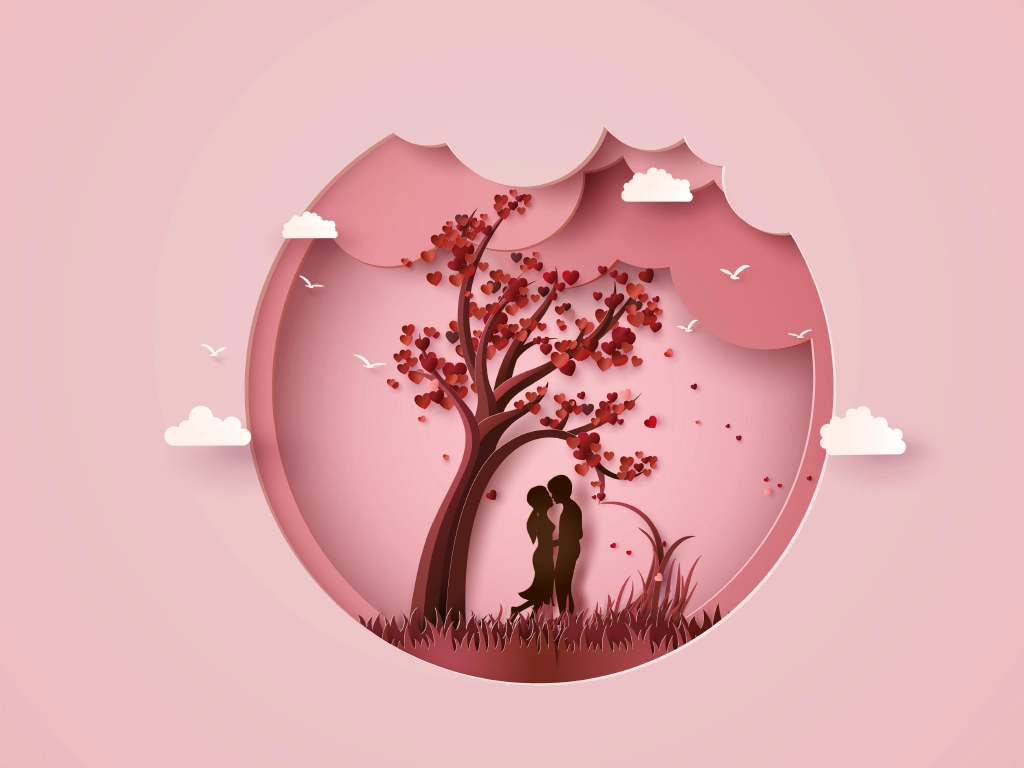Over the years, many writers and scholars have widely used the words “romantic love” and “romantic relationship” with somewhat casual and fuzzy meanings. They frequently used these words instead of the words “passionate love” and “premarital relationship”.
The romantic experience often engages passionate feelings, but not necessarily. It may also involve calmer, more affectionate feelings. Romantic love has several other features that make it more complex than passionate love (Karandashev, 2019).
The Literary Idea of Romantic Love
Several centuries ago, romantic love emerged as a literary idea. Since those times, many authors have used the word for centuries as a literary term, while laypeople often shy away from it.
The concept of romantic love implies certain cultural ideas and beliefs. For centuries, oral folk storytelling and written novels have been at the forefront of generating and disseminating notions of love among the educated elite across many cultures (see for review, Karandashev, 2017).
Artists and writers have expressed such fantasies in their creative works. The romantic cultural thoughts and images presented in abundance in fine art, poetry, and novels may coincide with the reality of people’s lives or may not. Romantic love can also refer to the individual beliefs, emotional dispositions, traits, states, and romantic behaviors of some people.
In this article, I talk about “romantic love” as it is described in scholarly tradition. What does the term “romantic love” really mean?
The Unrealistic and Idealized Type of Love
Romantic love is an unrealistic, irrational, and idealized type of love. Literary and social science scholars have primarily contrasted romantic love with rational, practical, and pragmatic love. Realistic and pragmatic attitudes are the opposite of romantic beliefs. Romantic lovers prefer to live in their idealized world of fantasies and aspirations. They tend to idealize their partner and their relationship. Their romantic imaginations embrace their minds.
These imaginative ideas and perceptions of a partner and a relationship inspire them to favor personal choice over practical and social affordances. This is why lots of people can say, “Love is blind.” And many men and women enjoy being “blind”, enchanted, and elevated in this romantic world. It is worthwhile for them. Romantic love brings them away from the mundane and boring reality of their daily lives and onto another plane of existence. They believe “love always wins” and “love conquers all.”
What Is the Romantic Experience of Love?
Literally, the word “romantic” refers to something or someone characterized by an idealized view of reality or people. Romantic artists and writers of the past strived to depict the world according to their idealized perceptions. Romantics are generally idealists. The same way, a romantic lover or a person in the state of romantic love perceives the beloved, their relationship, and everything around them through rose-colored glasses, an idealistically optimistic view.
Cultural and personal beliefs of societies, however, determine what qualities of love and relationships are considered “romantic.” People’s understanding of “romantic love” varies across time and cultures, as well as between different types of men and women. These can be the beautiful romantic words said to the beloved, a romantic letter, a romantic dinner, a romantic dance, a romantic weekend, or a romantic honeymoon. It can be anything that partners perceive as romantic (Karandashev, 2017, 2019).
The most notable agreement between scholars is that romantic love is a certain set of romantic beliefs and the “idealization of a lover’s unique qualities and considering a relationship with him or her as exceptionally perfect”(Karandashev, 2021b, p. 63).
Romantic Idealization of a Partner and a Relationship
Such romantic idealization manifests itself in idealized attitudes toward the beloved and the relationships with him or her. Romantic idealization is obvious in a person’s experience of love feelings, emotions, and moods.
The key features of such a romantic experience are “viewing the partner at a given moment in a highly positive way, probably but not necessarily with desire or passion, and the seeking and yearning for sexual intimacy, which may have already been attained” (Lazarus, 1991, p. 276).
In short, “romantic” means something idealized and beautiful.
“Romantic love is a combination of beliefs, ideals, attitudes, and expectations that coexist in our conscious and unconscious minds.”
(Karandashev, 2017, p. 30).
Certain patterns of emotional, cognitive, and behavioral tendencies are associated with romantic love. As is associated with other types of love, romantic love has a distinct set of characteristics that distinguish it from others.
What are the main key features of romantic beliefs and expectations?
